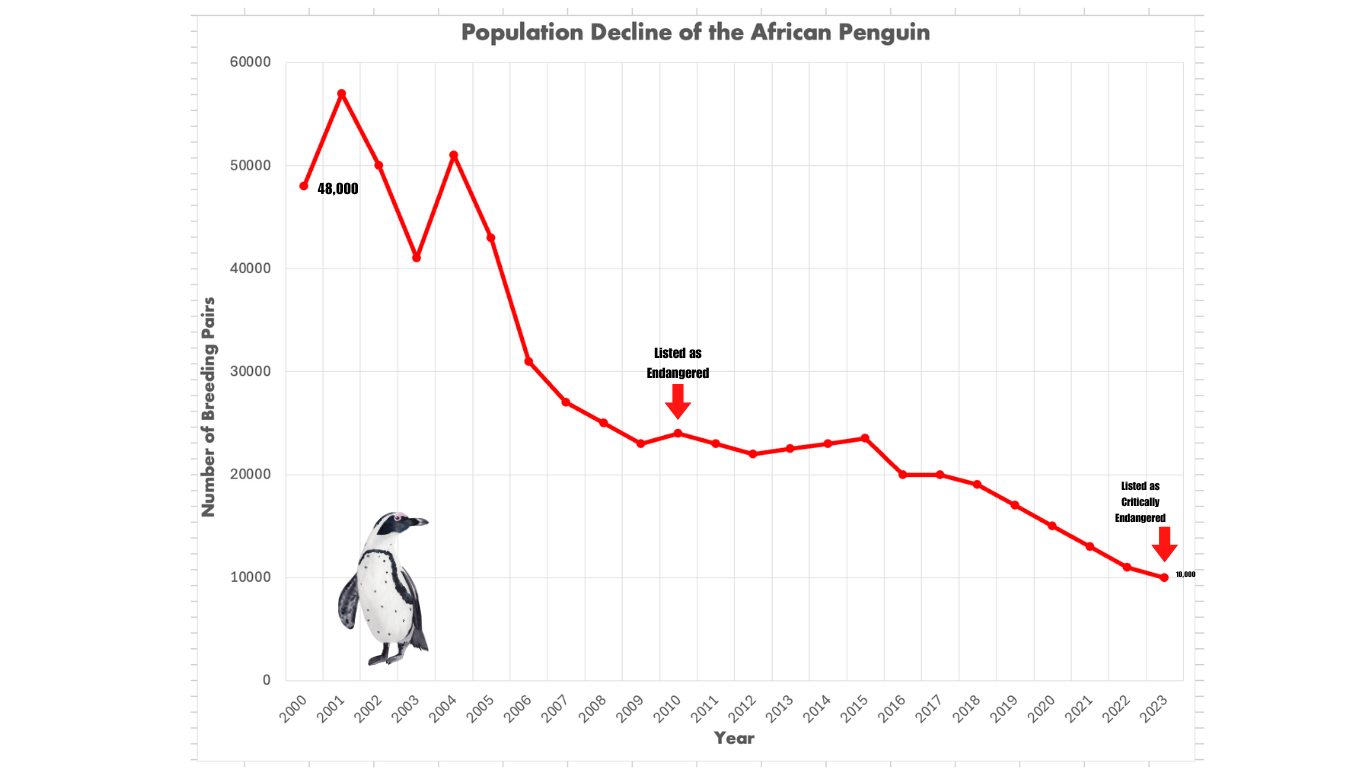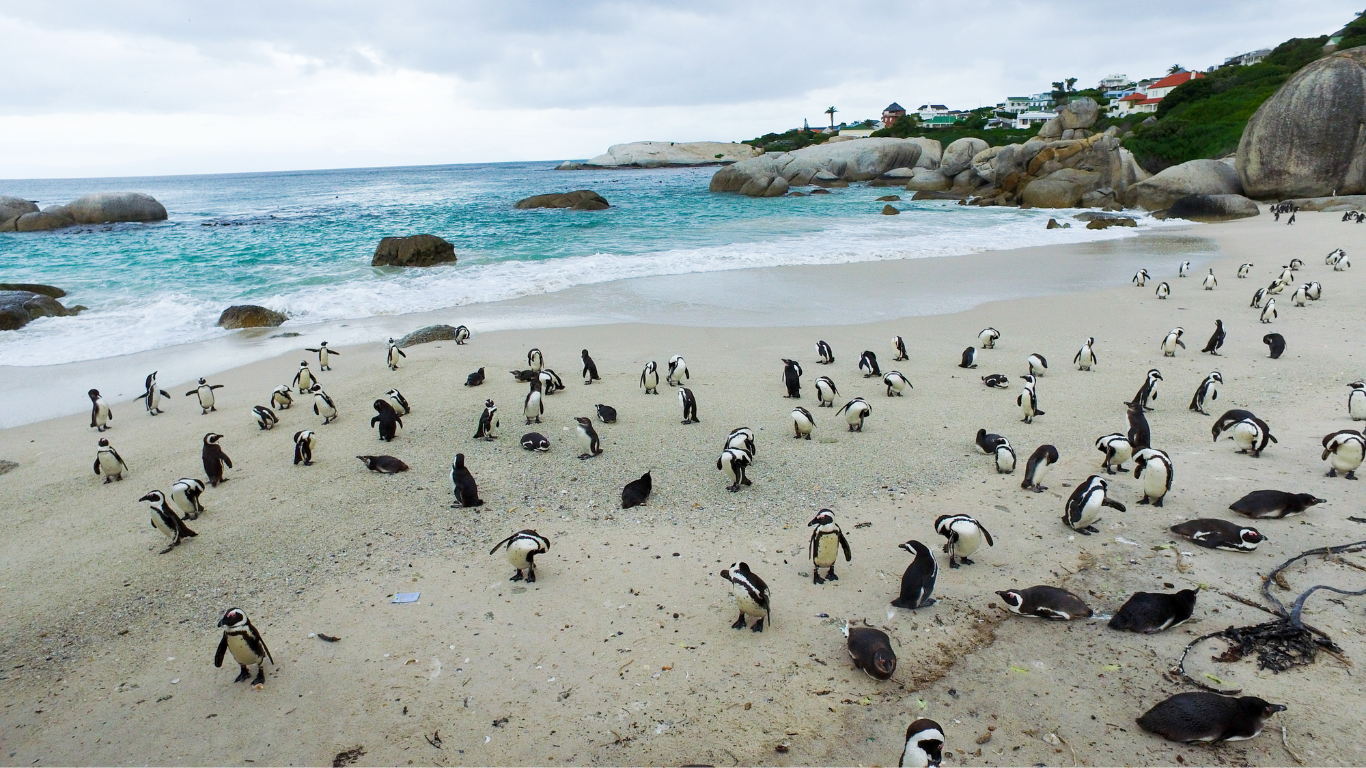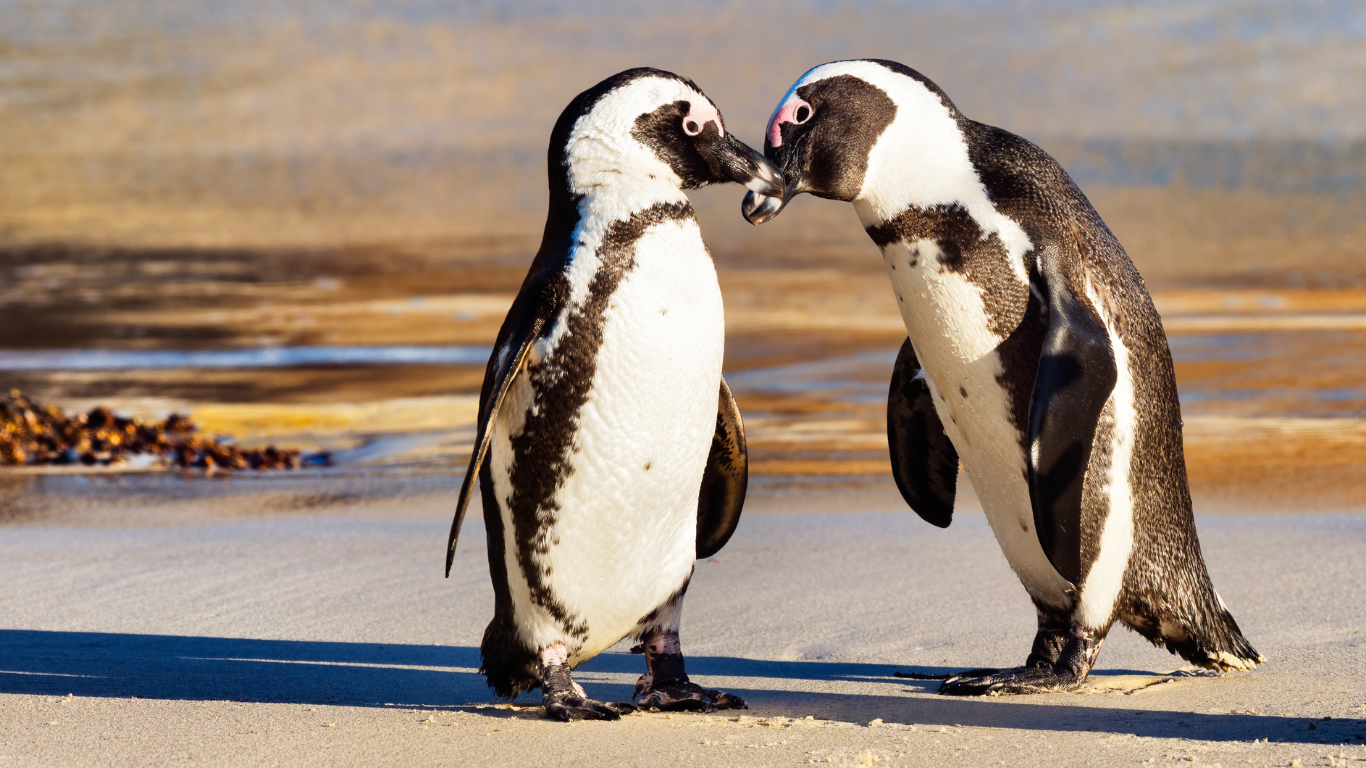The African Penguin
The African penguin has just been listed as critically endangered by the International Union for Conservation of Nature (IUCN). This alarming development underscores just how close this iconic seabird is to extinction.
The African penguin is the only penguin species endemic to Southern Africa. Like all penguins, it is a flightless bird, with a body adapted for a marine lifestyle: Wings flattened into flippers, webbed toes, and streamlined, waterproof feathers.
Known for their tuxedo-like plumage and characteristic waddle, African penguins are beloved icons in Southern Africa, where they are found in 24 colonies between Namibia and Algoa Bay and attract tourists from all over the world.
The African penguin is now the most threatened of all penguin species.
At the beginning of the 19th century, there were roughly four million African penguins; today there are fewer than 10,000 breeding pairs remaining in Namibia and South Africa. At the current rate of decline, the African penguin could be extinct by 2035. In 2023, some breeding colonies faced the lowest survival rates for chicks on record.
African penguins are considered keystone species, providing essential services to their ecosystems and keeping the balance of their environments in check. Without this important animal, the ecosystem faces collapse and what scientists call “trophic cascade” – a situation in which the delicate balance of the food chain is upended and the ecosystem fails as a whole.

What is threatening the African Penguin?
Food shortages
What makes this situation even more serious is that African penguins only eat sardines and anchovies, which are in rapid decline because of overfishing , particularly around breeding colonies. Penguins are forced to compete with commercial fisheries for an ever-dwindling supply of fish, swimming further and further from home to find enough food – and often starving to death at sea.
Oil spills and pollution
Heavy shipping activity around the South African coastline leads to increased noise pollution and the risk of oil spills. The noise from ships and marine traffic impedes the communication and navigation abilities of marine life; while oil spills coat penguins’ feathers, which disrupts their waterproofing, prevents them from being able to thermoregulate, and leads to hypothermia and drowning. Chemical and plastic pollution also impact the health of penguins.
Loss of habitat and climate change
Increasing human expansion has significantly reduced the availability of habitats for wild animals all around the world. Many African penguin breeding sites have been destroyed or are disturbed by people. Without safe breeding sites, the African penguin is vulnerable to extinction.
Rising sea temperatures, extreme weather events and shifts in the distribution of fish stocks further threaten the African penguin’s survival.
Predation
The impact of natural predators is exacerbated by decreased habitats, as animals are forced into smaller spaces with little room to evade predation – put simply, there is nowhere for the penguins to go to escape the animals that prey on them. Domestic dogs and cats pose a threat to mainland penguin populations and can decimate colonies, especially during hatchling season.
Breeding pairs
Penguins are monogamous and raise their chicks in pairs; the survival of the chicks depends on both parents. Typically, one parent will stay to keep the eggs warm while the other forages for food. However, in a time of decreased access to food, penguins often die at sea before finding sustenance or take several days to return. The parent looking after the eggs is then left for an extended period of time without access to food and is unable to move. Sometimes, the starvation becomes too dire, and the carer parent is forced to abandon their nest in search of food. Eggs can only survive a maximum of three days without a parent.

How you can help
- Support sustainable fishing practices and advocate for policies that reduce the impacts of overfishing.
- Reduce your carbon footprint: Cut down on single use plastics and reduce your consumption of fossil fuels where possible.
- If you visit an African penguin colony (which we would suggest, as they are really a treat to see), make sure to keep your distance and be respectful. Never try to touch or feed the penguins, do not approach them, do not litter, and follow all guidelines of the area. Ethical tourism is a great way to support initiatives that work to save the penguins (for more on how to choose ethical tourism, read our article here).
- Donate to ASI today to support our efforts in protecting African penguins from extinction.
Read more about other important wild animals at risk of extinction.

